

ABOUT US
In contemporary times, the beauty and tranquility of the Himalayas are at risk. Marginalized communities typically have limited economic opportunities and rely heavily on the natural resources in their immediate surroundings. This is particularly true in the Uttarakhand Himalayas. Overexploitation of these resources has exposed the region to significant risks such as landslides, earthquakes, and wildlife depletion. Consequently, there is an urgent need for the conservation of the flora and fauna in these noble yet fragile mountains to prevent various forms of threats to human lives. To restore the delicate balance between nature and human activities, it is imperative that people actively and skillfully engage in the preservation of this precious Himalayan heritage. Youths and rural households must prepare themselves for self-employment and alternative occupations to sustain their livelihoods.

A Natural View of HIFEED Campus at Ranichauri, Tehri Garhwal, Uttarakhand
WHY WE ARE HERE
We are located in the fragile mountain regions, where we face significant challenges such as outmigration, poor economic growth, and a concerning decline in environmental sustainability. These issues have deeply impacted our communities, leading to a range of social and ecological problems. Given these circumstances, we are committed to addressing these challenges head-on with a mission and vision centered on transformative change. Our goal is to foster sustainable development, improve economic conditions, and restore the environmental balance in these regions. By actively engaging with the community, we aim to create a better future for all, ensuring that our efforts lead to meaningful and lasting improvements in both the quality of life for residents and the health of our natural surroundings.
OUR BELIEF
At HIFEED, we firmly believe that individuals possess the ability to not only transform themselves, but also their environment, while taking into account the needs of their local ecology. Economic growth, when pursued with proper consideration for theenvironment, need not degrade it. In fact, it can contribute to the growth of the habitat and improve the quality of the environment. This requires providing people with appropriate technology and operational skill transfers. In the case of skill transfers in mountainous areas, it is important to focus on women. We recognize that poverty has a significant impact on human dignity and quality of life, which is why we place great emphasis on economic empowerment at HIFEED. We understand that good governance is crucial for bringing about sensitive transformation of societies and their surroundings, and we are open to partnerships with the government to promote sustainable development of local communities. Furthermore, we believe that no community, area, or institution can exist in isolation, and we constantly strive to network with reputable institutions to achieve our goals.
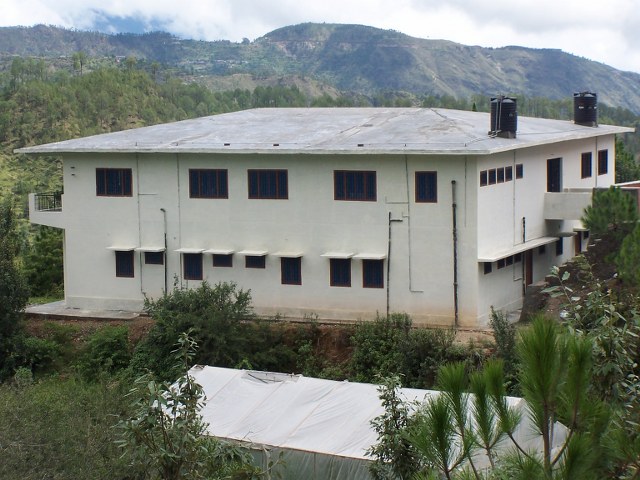
Training and Extension Center of the Organization at HIFEED Campus, Ranichauri, Tehri Garhwal, Uttarakhand
TRANSFORMATION PROCESSESS THAT HIFEED ADOPTS FOR SUSTAINABLE RETENTION OF THE QUALITY LEARNING AND QUALITY GROWTH
1. Adherence to Sarvodaya Philosophy: HIFEED follows the Sarvodaya philosophy, emphasizing persuasion and leading by example before advocating practices to others.
2. Setting Model Examples: We create exemplary models that can be appropriately scaled and replicated in similar contexts to ensure broader impact and sustainability.
3.Respecting Human Values: We place the highest respect on human values, ensuring that our initiatives are inclusive, humane, and respectful of all individuals involved.
4.Learning from Experiences: We value both successes and failures as crucial learning opportunities, allowing us to continuously improve and adapt our strategies.
5.Proper Documentation: We maintain comprehensive documentation of our processes and outcomes with the dual purposes of future reference and ensuring transparency.
ABOUT THE ORGANIZATION
Himalayan Institute for Environment, Ecology & Development (HIFEED) is a leading research and development organization dedicated to fostering sustainable development and socio-economic upliftment across the country. Established in 1995, HIFEED has been at the forefront of addressing critical issues in agriculture, rural development, livelihood promotion, and environmental sustainability. The organization focuses on promoting sustainable organic agriculture and horticulture practices, supporting livelihood initiatives, and facilitating the formation and promotion of Farmers’ Producer Organizations (FPOs). Additionally, HIFEED plays a significant role in waste resource management and improving drinking water and sanitation facilities in rural areas, while providing training and capacity-building programs to empower communities.

Technology Resource Center of the Organization at HIFEED Campus, Ranichauri, Tehri Garhwal, Uttarakhand
Furthermore, the organization actively promotes rural and village tourism by integrating agriculture and allied activities into the program. HIFEED also conducts monitoring, evaluation, and research studies to assess the impact of projects and programs implemented through government initiatives. With 30 years of experience, HIFEED has made valuable contributions to numerous development projects across the country. Committed to inclusivity, HIFEED ensures that its work is accessible to all, irrespective of race, caste, creed, sex, community, or religion.
HIFEED was established by a distinguished group of social scientists and professionals committed to promoting sustainable development and enhancing living conditions in the Himalayan region. The organization prioritizes innovative research and development initiatives aimed at improving the well-being of mountain communities, as well as those in the plains across the country. Initially commencing its operations in Uttarakhand, HIFEED has since expanded its presence to thirteen states across the nation, including Uttar Pradesh, Himachal Pradesh, Jammu & Kashmir, Maharashtra, Sikkim, Meghalaya, Arunachal Pradesh, Tripura, Nagaland, Bihar, Rajasthan, and Kerala. By doing so, HIFEED shares and disseminates its community-based experience and expertise with other regions of the country.
Over the past 30 years, the organization has gained a wealth of experience and expertise in project planning, design, execution, and implementation. It has successfully implemented approximately 118 projects, programs, and assignments across multiple sectors in various states with the support of around 74 national and international organizations. These include various Ministries, Departments, and Agencies of the Government of India, several State Governments, Corporate Enterprises (CSR), as well as international organizations like the World Bank, Asian Development Bank (ADB), and the International Fund for Agricultural Development (IFAD).
The project portfolio of HIFEED covers a wide variety of initiatives, ranging from small to large-scale projects, designed to meet the diverse needs of various sectors. With projects valued between Rs. 1.00 Lakh and Rs. 15.00 Crores, the organization demonstrates its capacity and capability to effectively manage projects of varying scales and budgets. This extensive range of project sizes reflects HIFEED’s flexibility in handling both short-term, smaller projects and long-term, large-scale initiatives. By addressing different complexities and requirements, the organization ensures high-quality outcomes and makes significant contributions to the growth and development of the sectors it serves.
The organization has an extensive nationwide network, collaborating with various Central and State Government Ministries, Departments, Institutions, Organizations, Agencies, and State Agricultural Universities (SAUs), as well as ICAR Institutes and other Research Institutions. Additionally, it works closely with Non-Governmental Organizations (NGOs), Civil Society Organizations (CSOs), Community-Based Organizations (CBOs), and grassroots-level entities such as Gram Panchayats, Self-Help Groups (SHGs), Women’s Organizations, Youth Organizations, and Federations, fostering partnerships to effectively achieve its development objectives.
HIFEED offers a wide range of services across diverse sectors, including agriculture and horticulture development, the formation and promotion of Farmers Producer Organizations (FPOs), monitoring and evaluation, baseline surveys and studies, information, education, and communication (IEC), water and sanitation, waste management (solid, liquid, and plastic), rehabilitation and resettlement, women’s empowerment and child development, cultural development, vocational education and training, income and employment generation, capacity building, scientific research, natural resource management, animal husbandry and dairy development, health education and HIV/AIDS awareness, technology development and dissemination, research and development, and the preparation of CAT plans, micro-plans, perspective plans, and DPRs. The organization prioritizes research, monitoring, and evaluation to assess the effectiveness and resource utilization of both governmental and non-governmental initiatives. HIFEED’s expert team provides robust management support services, specializing in strategic planning, organizational development, capacity building, financial management, and documentation.
HIFEED excels in designing and implementing monitoring, evaluation, and learning systems for development projects. It conducts comprehensive pre-funding, mid-term, and end-term appraisals, along with participatory evaluations involving institutional leadership, functionaries, beneficiaries, and other stakeholders. The organization also creates customized training modules to address specific domains and management needs, utilizing Process Evaluation Research Techniques to strengthen the reliability and depth of assessments. By applying efficient monitoring practices, HIFEED ensures continuous improvement, optimal resource utilization, and accountability. Its expertise in strategic planning contributes to sustainable development and the delivery of impactful outcomes across multiple levels.
The overall affairs of the organization are overseen by the Board of Management (Governing Board), which provides strategic guidance and policy-level decisions to ensure the achievement of organizational goals. To implement these decisions, the Management or Executive Committee works closely with the Board, focusing on coordinating and executing approved plans and policies. The day-to-day operations are managed by the Executive Director, who serves as the Chief Executive Officer. The Executive Director is responsible for overseeing project implementation, supervising staff, and ensuring the smooth running of all organizational activities. This role is supported by a dedicated, multi-disciplinary team, including program and administrative staff. To further enhance the organization’s technical capacity, external experts and professionals are engaged on a need basis. These specialists provide specialized knowledge and skills, ensuring high-quality execution of projects and programs. Together, the internal team and external experts form an integrated framework that enables the organization to function effectively and achieve its mission.
In conclusion, HIFEED continues to make a significant impact on sustainable development by addressing critical socio-economic and environmental challenges across the country. With its extensive experience, innovative approaches, and unwavering commitment to inclusivity, the organization plays a vital role in enhancing livelihoods, empowering marginalized communities, and promoting environmental conservation. Through its diverse range of projects, strategic collaborations, and expert-driven methodologies, HIFEED remains steadfast in its mission to create lasting change and foster socio-economic growth in both rural and urban areas. Its emphasis on research, monitoring, and capacity building ensures that its initiatives are effective, impactful, and sustainable, aligning with the broader development goals of the nation. Backed by a robust organizational management structure, experienced leadership, dedicated staff, and a network of national and international partners, HIFEED is well-equipped to continue making a meaningful difference in the lives of the communities it serves.
VISION OF THE ORGANIZATION
The vision of the organization is to establish a sustainable model that ensures the preservation and sustainability of the Himalayan environment and its ecological system, while promoting community-centered approaches that supplement local livelihoods. Through awareness, empowerment, and collaboration, we strive to create a harmonious balance between environmental, social, and economic factors, and envision a future where the Himalayan ecosystem thrives and its communities reap the benefits of sustainable development.
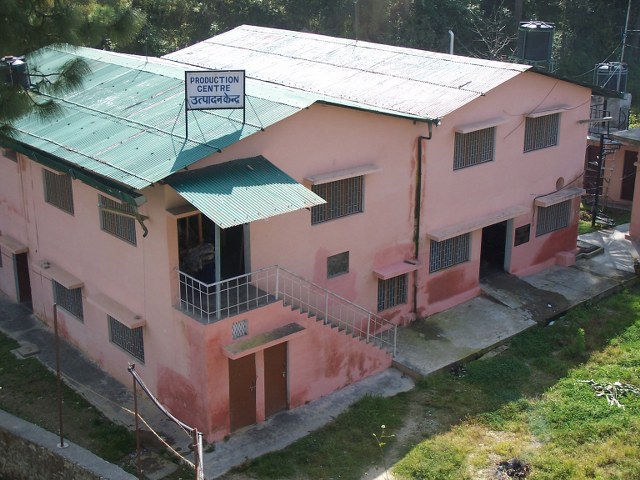
Common Facility Center (CFC) of the Organization at HIFEED Campus, Ranichauri, Tehri Garhwal, Uttarakhand
MISSION OF THE ORGANIZATION
The mission of the organization is to promote sustainable development in the Himalayan region by empowering local communities to preserve their natural resources while enhancing their economic livelihoods. We aim to create a model of development that balances the needs of the environment, local communities, and the economy, through partnerships with stakeholders and implementation of programs promoting environmental awareness, community empowerment and sustainable livelihoods.
AIMS OF THE ORGANIZATION
The aims of the organization are to promote sustainable development in the Himalayan region while preserving its unique environmental and ecological heritage. Our aim is to empower the local communities to take an active role in preserving their natural resources while enhancing their economic livelihoods, thereby creating a model of development that balances the needs of the environment, local communities, and the economy.
OBJECTIVES OF THE ORGANIZATION
The objective of the organization is to assess and build the capacity of the community to run various income-generation activities and enterprises for self-sustainability, promoting environmental awareness, community empowerment, and sustainable livelihoods. We seek to collaborate with stakeholders, including government agencies, non-profit organizations, and the private sector, to ensure the long-term preservation of the region’s unique ecological and cultural heritage.
GOAL OF THE ORGANIZATION
Our ultimate goal is to leave a lasting legacy of sustainable development in the Himalayan region, where communities are empowered to preserve their environment and enhance their economic livelihoods, and where the natural resources of the region are preserved for future generations.
APPROACH OF THE ORGANIZATION
At HIFEED, we are committed to achieving our vision, mission, aims, objectives and goals through a well-defined approach and strategy. Our approach is based on the following principles:

Jan Shikshan Sansthan (JSS) Running under the Aegis of HIFEED at HIFEED Campus, Ranichauri, Tehri Garhwal, Uttarakhand
i. Bottom-Up Approach: We strongly believe in empowering communities to identify their own needs and priorities. Our approach is centered on listening to the voices of the people we serve, and involving them in every stage of the project cycle.
ii. Need-Based Approach: Our projects are designed based on the needs of the community we serve. We ensure that our interventions are relevant, effective, and sustainable, and respond to the specific needs and priorities of the target group.
iii. Participatory Approach: We encourage active participation and engagement of all stakeholders, including beneficiaries, local authorities, and other relevant actors. We believe that collective action is key to achieving sustainable and impactful results.
iv. Participatory Planning: We involve communities in the planning process to ensure that our projects are designed with their active participation and ownership. We use participatory tools and techniques to facilitate a collaborative and inclusive planning process.
v. Transparency in Implementation: We follows a participatory approach involving stakeholders in planning, implementation and monitoring for transparent and accountable project implementation. We prioritize the use of participatory tools and encourage active participation from all actors. Continuous real-time monitoring and transparent partnerships ensure sustainable implementation.
vi. Concurrent Monitoring: We continuously monitor our projects to ensure that they are on track and achieving the desired results. We use real-time data to inform decision-making, and adjust our interventions as needed to ensure the achievement of our goals.
STRATEGY OF THE ORGANIZATION
Our strategy is to work closely with communities to implement projects that address their most pressing needs. We collaborate with donors whose values and priorities align with our own, and ensure that our fundraising efforts are consistent with our vision, mission, and objectives. We strive to build transparent and dignified partnerships with all stakeholders, including communities, local authorities, government institutions and NGOs. We seek to engage the expertise of government institutions, research institutions, and international agencies to ensure that our projects are evidence-based and meet global standards of excellence.
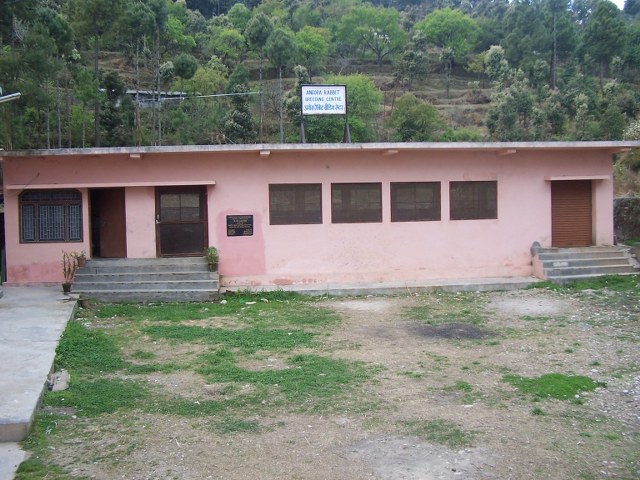
Production Center of the Organization at HIFEED Campus, Ranichauri, Tehri Garhwal, Uttarakhand
We recognize the importance of capacity building and invest in regular training programs for our staff and the communities we serve to develop relevant skill sets that empower them to drive positive change. HIFEED is firmly committed to creating a future that is not only beneficial but also transparent, sustainable, and impactful for the communities it serves. By ensuring transparency, HIFEED maintains an open and honest dialogue with its stakeholders. HIFEED’s sustainability efforts include reducing its environmental footprint and supporting local communities in a way that is respectful and beneficial to all.
GEOGRAPHICAL COVERAGE AND WORKING AREA OF THE ORGANIZATION
In its early stage, the organization focused its efforts on serving the hilly areas of Uttarakhand. However, as we gained experience and expertise, we expanded our reach and became empanelled under various programs of the Government of India and State Governments. Through this, we developed the capacity and capability to take on open-ended projects, programs and assignments, allowing us to extend our services to other states such as Uttar Pradesh, Himachal Pradesh, Jammu & Kashmir, Meghalaya, Nagaland, Arunachal Pradesh, Maharashtra, Sikkim, Rajasthan, Bihar, Kerala. Over the years, we have undertaken a diverse range of assignments, including the formation and promotion of farmers’ producer organizations (FPOs), training and capacity building, monitoring and evaluation, baseline surveys and studies, impact assessments, need assessments, research studies, micro-planning, preparation of detailed project reports, and IEC activities. Our team approaches each assignment with a tailored strategy, considering the unique needs and objectives of each community or group. Our goal is always to ensure that our interventions lead to meaningful and sustainable impact, improving the livelihoods and well-being of the people we serve.
SERVICES PROVIDED BY THE ORGANIZATION
The portfolio of the organization covers a broad range of sectors, including but not limited to the formation and promotion of Farmers Producer Organizations (FPOs), monitoring and evaluation, baseline survey and studies, information education and communication (IEC), water and sanitation, solid, liquid and plastic waste management, rehabilitation and resettlement, women’s empowerment and child development, cultural development, vocational education and training, income and employment generation, training and capacity building, scientific research and studies, natural resource management, agriculture and horticulture development, animal husbandry and dairy development, health education and HIV/AIDS, technology development and dissemination, research and development, and preparation of CAT plans, micro plans, perspective plans, and DPRs.
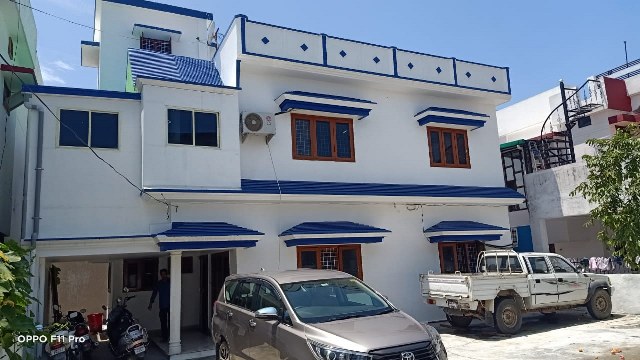
Administrative Office of the Organization at
Dehradun, Uttarakhand
HIFEED places a significant emphasis on conducting research, monitoring, evaluations, and assessments of development initiatives by the Government and non-governmental organizations. This is vital for assessing the results achieved, the utilization of resources, and the levels of capacity. With its team of professionals, HIFEED provides both long-term and short-term management support services to development initiatives. The organization specializes in creating multi-disciplinary teams, capable of addressing an assortment of needs in the areas of strategic planning, human resource and organizational development, research, monitoring and evaluation, capacity building and facilitation, financial management and documentation, etc.
One of the key areas of HIFEED’s expertise is developing and implementing monitoring, evaluation, and learning systems for projects and programs. The organization possesses expertise and experience in pre-funding, mid-term, and end-term project appraisals. It also develops and conducts training modules in domain and management-related areas.
HIFEED specializes in conducting participatory need assessments by eliciting perceptions and opinions from various stakeholders, including the target group. This exercise facilitates in identifying the actual needs of the community and target groups, and those spheres of their lives where support of an external agency is required to make a holistic and realistic intervention.
The organization believes that a holistic understanding of an issue or an area requires both qualitative and quantitative data. Thus, baseline surveys and PRA are complementary to each other. HIFEED conducts both participatory mid-term and end-line evaluations involving all major stakeholders, including institution leadership, functionaries, beneficiaries, non-beneficiaries, and agencies linked with. The evaluations also make use of the Process Evaluation Research Technique.
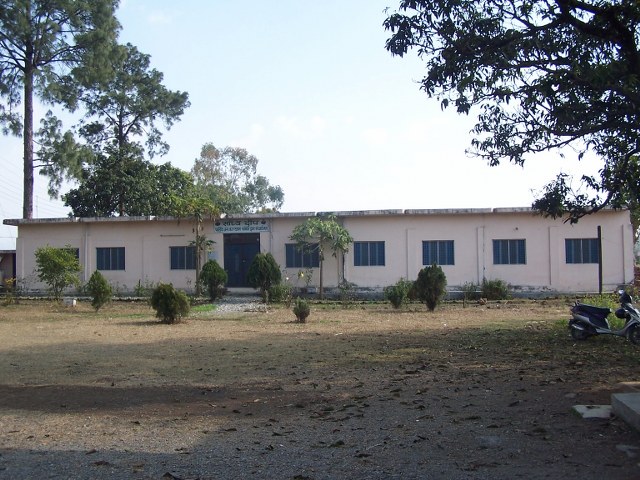
Saandhya Deep Center of the Organization at
Dehradun, Uttarakhand
HIFEED places great importance on monitoring, which leads to a greater degree of awareness of results and constant improvement through efficient and effective use of resources, ultimately fostering a sense of responsibility amongst the people. The organization’s team of professionals has in-depth domain expertise, which has helped in strategic planning at various levels.
In conclusion, HIFEED’s proven capacities in providing management support services, research, and monitoring and evaluation within the social sector, and its emphasis on conducting research, evaluations, and assessments, make it a valuable partner for NGOs and development initiatives.


